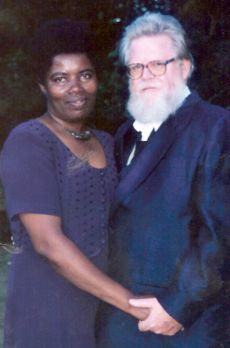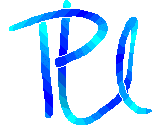Diferencia entre revisiones de «Usuario:Philbartle»
De WikiEducator
m (→Los sermones de Phil) |
m (→Los sermones de Phil) |
||
| Línea 71: | Línea 71: | ||
* '''Epistemology''': It might be time to add a few questions about epistemology (how we know) to our discussions on WikiEducator. Lots of good debate on "How do we learn?" and its converse (but not its mirror image), "How do we teach?" Now we should ask, "How do we know?" If we learn something, how do we know if and when we know? If we teach something, how do we know if and when the taught know? | * '''Epistemology''': It might be time to add a few questions about epistemology (how we know) to our discussions on WikiEducator. Lots of good debate on "How do we learn?" and its converse (but not its mirror image), "How do we teach?" Now we should ask, "How do we know?" If we learn something, how do we know if and when we know? If we teach something, how do we know if and when the taught know? | ||
:◊ In classical Epistemology we have only four ways of knowing: (1) Observing (sensing, empiricism), (2) Logic (calculating, reason), (2) Belief (faith, worldview), and (4) Authority (Mommy said so). While we educators pay much lip service to our students discovering for themselves (by logic or observation), we rely considerably instead on Authority (because we, or the text book, said so). | :◊ In classical Epistemology we have only four ways of knowing: (1) Observing (sensing, empiricism), (2) Logic (calculating, reason), (2) Belief (faith, worldview), and (4) Authority (Mommy said so). While we educators pay much lip service to our students discovering for themselves (by logic or observation), we rely considerably instead on Authority (because we, or the text book, said so). | ||
| − | :◊ There are issues, problems and criticism for each of the four ways. Observation: we have no way of being certain that what you sense is what I sense, even if we give it the same name, and no objects, including observers, can occupy the same space at the same time, so everyone has a unique observational experience. Reason: There is nothing intrinsic abut two when we see two apples; the "twoness" is in our minds. Belief: If you do not believe in dwarves, that makes you a dwarf atheist. Authority: | + | :◊ There are issues, problems and criticism for each of the four ways. Observation: we have no way of being certain that what you sense is what I sense, even if we give it the same name, and no objects, including observers, can occupy the same space at the same time, so everyone has a unique observational experience. Reason: There is nothing intrinsic abut two when we see two apples; the "twoness" is in our minds. Belief: If you do not believe in dwarves, that makes you a dwarf atheist. Authority: proselytisers for a particular belief cite some Authority, usually a book, omitting to mention that all books are written by human beings. |
:◊ Now how does all this relate to open and free educational resourses, which is what we are all about? Is learning different for the four ways? Should our teaching be different? I once taught at a seminary and noticed then that the teachers of religion ("our kind" of course) did not like to take a critical and epistemological look at beliefs, like the creed, or that God exists, because Authority and belief have neither logic nor witness to back them up. No wonder they talked about sheep as a role model. | :◊ Now how does all this relate to open and free educational resourses, which is what we are all about? Is learning different for the four ways? Should our teaching be different? I once taught at a seminary and noticed then that the teachers of religion ("our kind" of course) did not like to take a critical and epistemological look at beliefs, like the creed, or that God exists, because Authority and belief have neither logic nor witness to back them up. No wonder they talked about sheep as a role model. | ||
:◊ We often forget that there is no finite amount of right knowledge, and what we know as a society constantly changes. There is no right answer. Administrators in schools and colleges, however, ask us for a course outline that portrays a finite quantity of information as the curriculum. There is no curriculum! | :◊ We often forget that there is no finite amount of right knowledge, and what we know as a society constantly changes. There is no right answer. Administrators in schools and colleges, however, ask us for a course outline that portrays a finite quantity of information as the curriculum. There is no curriculum! | ||
Revisión de 23:27 20 ago 2009
|
Български Deutsch English Français Polski Português Romãnã Pyccкий Tagalog Just try it; we (your community) will support you.
ContenidoLos sermones de PhilEl atleta no se hará más fuerte Traducido por Cristina Varela Mis pensamientos ocasionales sobre el WikiEducador y su comunidad
UtilitidadesToday is: 2024 mayo 17, viernes Contactos frecuentesOur little band, y amig@s de Potenciacion Comunitaria
Tips and SuggestionsComentarios de mis WikivecinosPor favor, escribe tus comentarios en la sección de Debates. Pincha en "Debate" en la parte superior de esta página.--Phil Bartle 03:07 3 may 2009 (UTC) |
||||||||||||||||||||||||||||||||||||||


